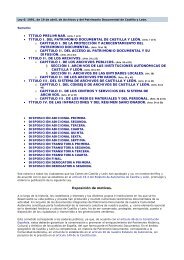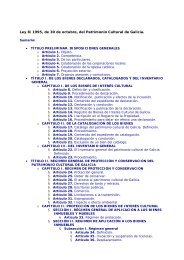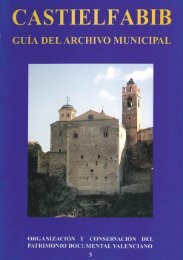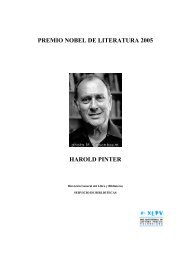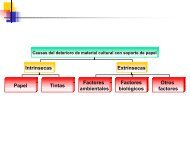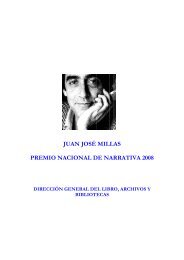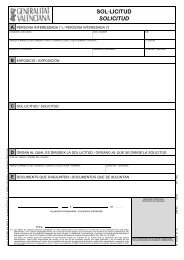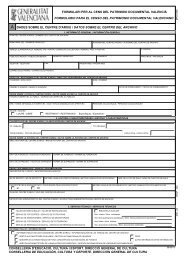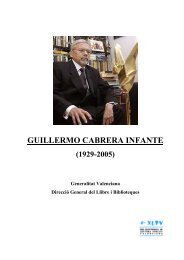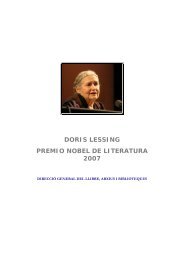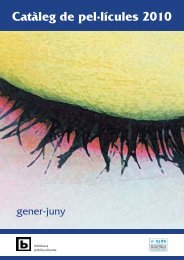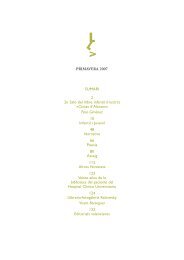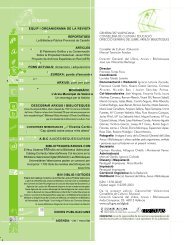Listening to the Past, Speaking to the Future
Listening to the Past, Speaking to the Future
Listening to the Past, Speaking to the Future
- No tags were found...
You also want an ePaper? Increase the reach of your titles
YUMPU automatically turns print PDFs into web optimized ePapers that Google loves.
Developing Archives and AudiencesThis young Protestant football team played against <strong>the</strong>ir Catholicneighbours, despite a divided community. Pho<strong>to</strong>: Star of <strong>the</strong> Seas,under 15s, Twinbrook, including Bobby SandsBlack His<strong>to</strong>ry Month with a creative and diverse rangeof activities. Work by Commanet, and The Linking ArmsCommunity Access <strong>to</strong> Archives Project are developing ourunderstanding of this important area of work. The TaskForce firmly believes that such initiatives should be apriority for publicly-funded services.Community ArchivesCommunity archives are hard <strong>to</strong> define. The Task Forcehas found evidence of geographical, cultural and <strong>the</strong>maticcommunities of interest. The growth of communityarchives has been an important development in recentyears, and has part stemmed from a desire by individualsand groups <strong>to</strong> record and share culturally diverseexperiences and s<strong>to</strong>ries. This grassroots movement is anexpression of <strong>the</strong> often strongly felt need <strong>to</strong> celebrate,record, and rebuild <strong>the</strong> sense of community in our lives<strong>to</strong>day. The creation of such collections which can containpho<strong>to</strong>graphs, moving images, ephemera, personaldocuments and papers and oral his<strong>to</strong>ry contributes <strong>to</strong> <strong>the</strong>making of local or community his<strong>to</strong>ry itself and adds a newand rich source <strong>to</strong> <strong>the</strong> work of publicly-funded archiveservices.Contributing <strong>to</strong> Community CohesionThe ability of Commanet projects (see page 28) <strong>to</strong> givea new slant <strong>to</strong> local heritage and bring people <strong>to</strong>ge<strong>the</strong>ris illustrated by Twinbrook Community Archive, based ona nationalist housing estate in Belfast. Here volunteerarchivists have garnered a wealth of material relating <strong>to</strong>both Protestant and Catholic community memory.Founder member of <strong>the</strong> Twinbrook archive, JohnMcPhillips, sees it as a resource for helping young people<strong>to</strong> understand <strong>the</strong>ir area’s his<strong>to</strong>ry, in particular <strong>the</strong>sectarian conflict that has shaped it since <strong>the</strong> early 1970s.Despite <strong>the</strong> difficulties of overcoming this his<strong>to</strong>ry ofconflict, <strong>the</strong>re are hopes that community archiving couldhelp <strong>to</strong> heal divided communities. At <strong>the</strong> Ulster People’sCollege, Karen McCartney provides support for Commanetgroups in Nor<strong>the</strong>rn Ireland. She envisages a future role forCommanet in “building up community confidence andbuilding up networks through which people can shares<strong>to</strong>ries.”Internationally, <strong>the</strong>re’s widespread interest in whatCommanet offers <strong>to</strong> divided or isolated communities.A project in Cyprus is using COMMA software <strong>to</strong> promotereconciliation between Greek and Turkish communities.The Canadian Heritage Information Network is using aversion of COMMA software <strong>to</strong> enable 500 voluntarymuseums <strong>to</strong> create on-line ‘exhibits’ for <strong>the</strong> VirtualMuseum of Canada.The Task Force wants <strong>to</strong> encourage <strong>the</strong> growth of suchcollections. This is a ‘bot<strong>to</strong>m up’ movement that willembed <strong>the</strong> importance of archives in <strong>the</strong> minds of manyand help create one of <strong>the</strong> most dynamic elements in <strong>the</strong>Archives Gateway. The Task Force is fully committed <strong>to</strong> <strong>the</strong>principle that <strong>the</strong> resources in community archivalcollections should be accessible <strong>to</strong> everyone, and thatarchives in <strong>the</strong> community are as important <strong>to</strong> society asthose in public collections.We <strong>the</strong>refore propose <strong>the</strong> establishment of a network ofregional Community Archive Liaison Officers <strong>to</strong> encourageindividual and community management participation andpromote <strong>the</strong> sharing of expertise, skills and enthusiasmwith <strong>the</strong> professional sec<strong>to</strong>r, and develop appropriateapproaches <strong>to</strong> access. There is much that <strong>the</strong> professionalarchival community can give in terms of knowledge andunderstanding of practical technical and his<strong>to</strong>rical issuesand much that can be mutually gained throughpartnerships between <strong>the</strong> wider community, communityarchives and <strong>the</strong> established archive domain.43



